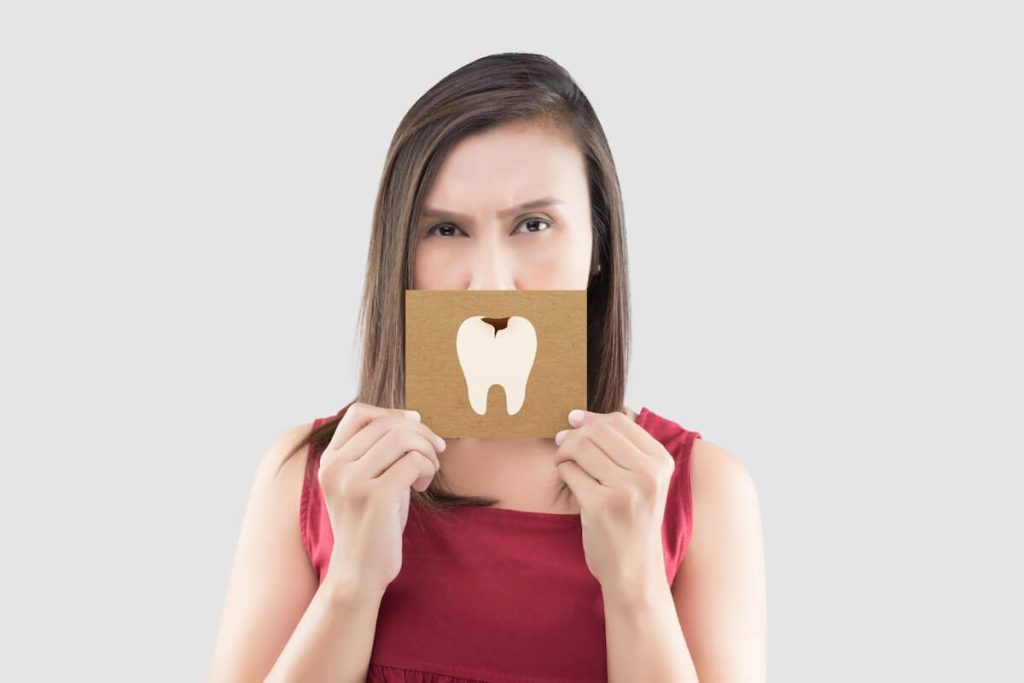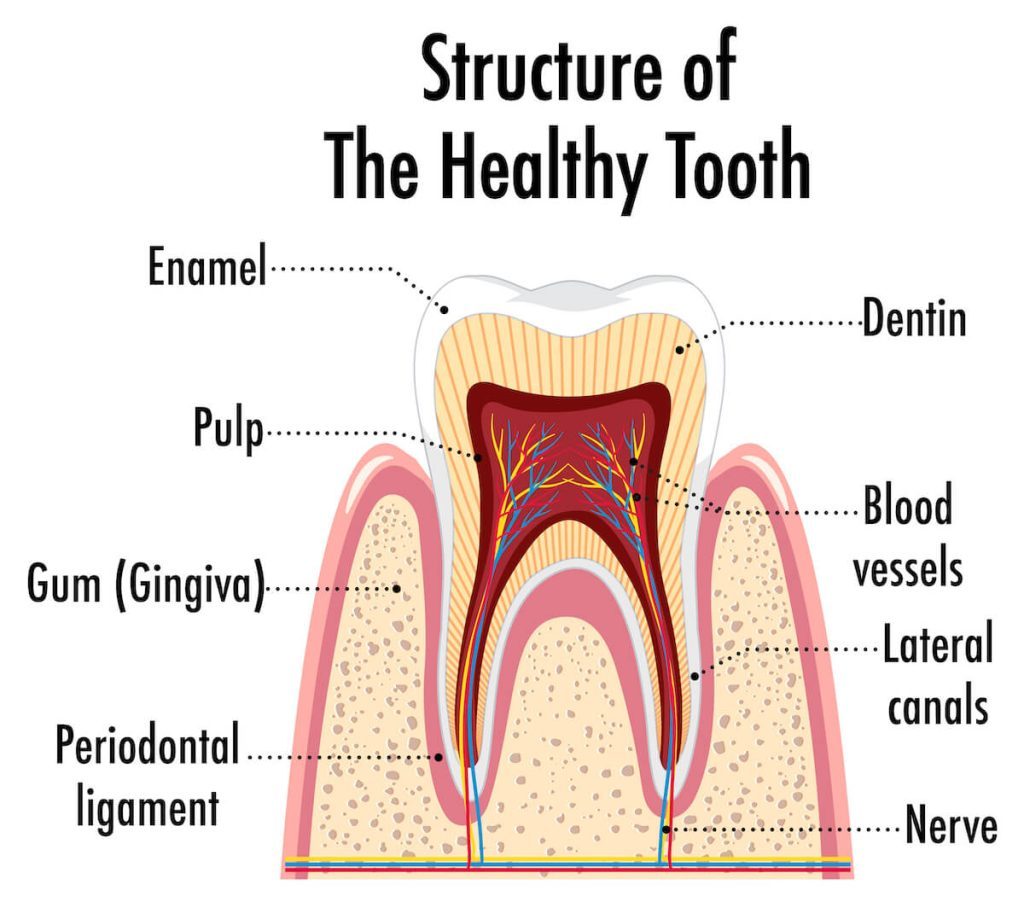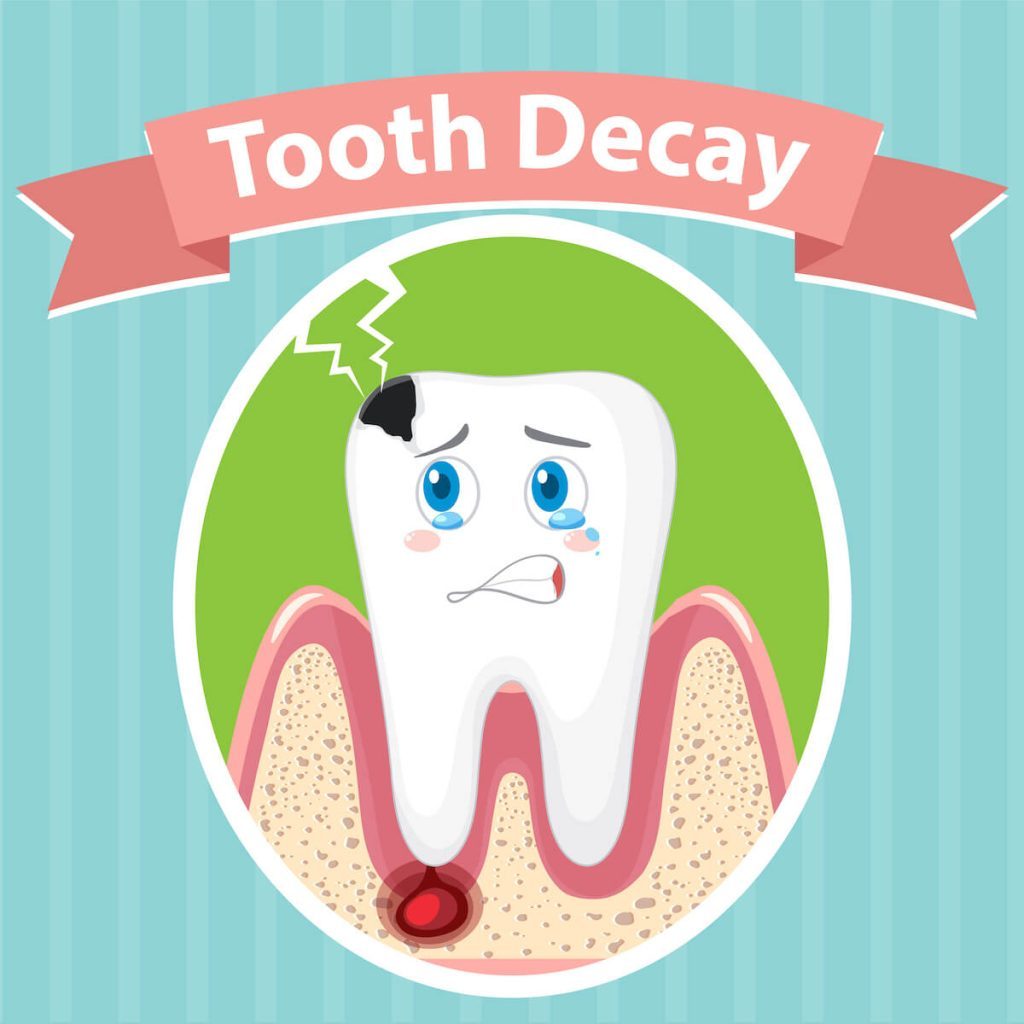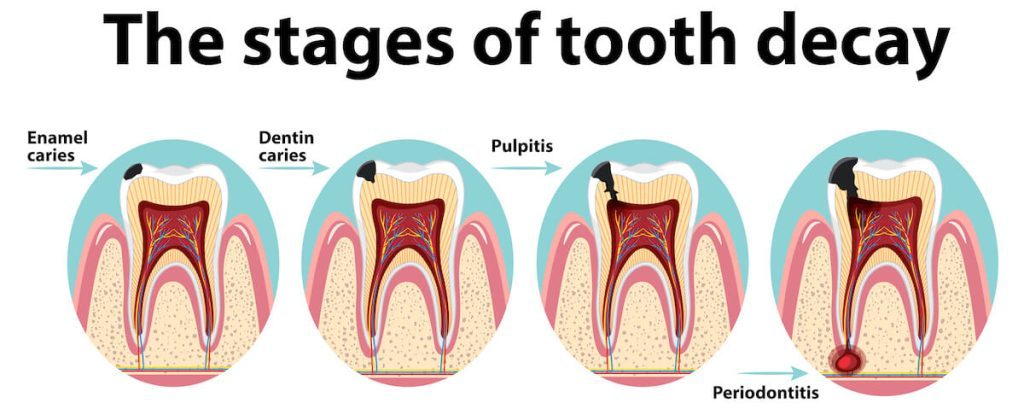Ask the Dentist: How To Stop And Prevent Dental Cavities

Cavities, also known as dental caries or tooth decay, are one of the most common dental issues worldwide.
Untreated dental caries (tooth decay) in permanent adult teeth is the most common health condition in the world according to the World Health Organisation and Global Burden of Disease 2021.
They can affect people of all ages and, if left untreated, can lead to severe pain, infection, and even tooth loss. However, dental cavities are also one of the most preventable dental conditions.
In this article, we’ll take a closer look at what cavities are, how they develop, their symptoms, and most importantly, how you can prevent them. By understanding how dental cavities form and how to prevent them, you’ll be better equipped to protect and keep your teeth for life.

What are Dental Cavities?
A dental cavity is a hole that forms in the tooth when the outer layer of enamel begins to erode. Teeth are constantly exposed to bacteria and sugars from food and drinks, which, when combined, create acids.
Over time, the acids produced by the bacteria can wear down and eat into the enamel, leading to decay and the formation of cavities. If not treated, cavities can grow larger and deeper, eventually affecting the sensitive inner layers of the tooth (the dentine and nerve/pulp), which can lead to pain and infection.
Dental cavities are typically categorized into three types:
- Smooth Surface Cavities: These occur on the flat, smooth areas of your teeth and are often preventable with good oral hygiene.
- Pit and Fissure Cavities: These typically develop in the grooves of the chewing surfaces, especially on the back teeth (molars), where food particles and bacteria can get trapped.
- Root Cavities: These form on the roots of teeth, usually in older adults, as gums recede, saliva production decreases leaving the root surface of the tooth vulnerable to tooth decay.
Causes of Dental Cavities
Several factors contribute to cavity formation, and understanding these can help you take preventive steps.
Here are some primary causes:
Plaque Build-Up
Plaque is basically the leftover food scraps and debris after eating. It is a sticky, colorless film that forms on your teeth when bacteria interact with sugars and starches.
If it is not removed by regular brushing and flossing, plaque can harden into tartar, which provides an ideal environment for bacterial growth and acid production.
These bacterial acids then erode and eat into the enamel, leading to cavities.
Sugary and Acidic Foods and Drinks
Foods and drinks high in sugar and acid, such as candy, soda, and fruit juices, can contribute to cavity formation.
Remember that carbohydrates like flour, pasta, bread, biscuits can also be broken down into sugars. Bacteria feed on these sugars and produce acid as a byproduct, which directly attacks the enamel.
Poor Oral Hygiene
Inconsistent brushing and flossing allow plaque and food particles to remain on your teeth. It is estimated that people who don’t floss end up having 30% of their tooth surfaces being dirty.
Without a good oral hygiene routine, the risk of plaque build-up and acid production increases, leading to cavities.
Dry Mouth
Saliva is essential in neutralizing acids and washing away food particles. When saliva production is low (a condition known as dry mouth), the risk of tooth decay increases.
Dry mouth can be caused by medications, dehydration, or certain medical conditions. Consult your dentist or medical doctor if you suspect dry mouth symptoms.
Genetics
Genetics can play a role in cavity formation. Some people naturally have weaker enamel or deeper grooves in their teeth, which can make them more prone to cavities.
Vitamins and Nutrients
It’s a fact that plants and flowers need healthy soil, water and sunlight to grow and stay strong. Our teeth need the right vitamins and nutrients to stay healthy and strong to be protected from cavities.
A number of nutrients and vitamins are important for tooth health, and deficiencies in these nutrients can lead to tooth decay:
Calcium: Strengthens tooth enamel and jaw bones.
Vitamin D: Helps the body absorb calcium and promote strong teeth.
Vitamin C: Helps rebuild tooth enamel and keep gums healthy.
Vitamin K2: Helps remineralize teeth.
Vitamin B12: Helps break down homocysteine, an amino acid that can damage tooth enamel.
Phosphorus: Works with calcium to protect and rebuild enamel.
Iron: A deficiency in iron can weaken teeth and jaw bones. Vitamin A: Helps with saliva production

Symptoms of Dental Cavities
Cavities develop in stages, and symptoms often worsen as the decay progresses.
Here are some signs to watch for:
- Tooth Sensitivity: Early-stage cavities may cause mild tooth sensitivity, especially when consuming hot, cold, sweet or sour foods and drinks.
- Visible Spots on the Tooth: You may notice white, brown, or black spots on the surface of your tooth. These discolorations often indicate areas where enamel has started to erode.
- Toothache or Pain: As the cavity grows, you may experience intermittent or constant pain in the affected tooth. The pain can range from a dull ache to sharp, intense discomfort, particularly when biting or chewing.
- Bad Breath and Unpleasant Taste: Bacterial growth within a cavity can cause bad breath or an unpleasant taste in the mouth.
- Holes or Pits in the Tooth: In advanced stages, you may feel or see holes in your tooth, food getting stuck in the same spot, which are signs that decay has significantly damaged the enamel and dentin layers.
If you notice any of these symptoms, it’s essential to visit a dentist as soon as possible. Cavities won’t heal on their own, but early intervention can prevent further decay and more extensive treatment.
Prevention of Dental Cavities
The good news is that dental cavities are largely preventable with proper care and a few lifestyle adjustments.
Here are some effective strategies to reduce your risk:
Brush and Floss Regularly
Brushing your teeth at least twice a day with fluoride toothpaste helps remove plaque and bacteria.
When fluoride is topically absorbed into the tooth structure, it is shown to make teeth more resistant against tooth decay.
Be sure to brush all surfaces of your teeth, including the backs and chewing surfaces. Flossing once a day removes food particles and plaque from between the gaps of your teeth where a toothbrush can’t reach.
Check your vitamins and nutrients
Talk to your medical practitioner to check your blood levels for particular nutrients and vitamins like Vitamin D, calcium, magnesium, vitamin K2, and iron which can all affect the strength of your teeth and ability for the body to protect itself.
Use Fluoride
Fluoride is a mineral that helps strengthen enamel and makes it more resistant to acid.
Many toothpastes and mouthwashes contain fluoride, and your dentist can provide fluoride treatments if needed. In areas where water isn’t fluoridated, your dentist may also recommend fluoride supplements.
Limit Sugary and Acidic Foods and Drinks
Reducing your intake of sugary and acidic items, like candies, sodas, and citrus fruits, can significantly decrease your risk of cavities.
When you do consume these foods, try to have them with a meal and rinse your mouth with water afterward to help neutralize and wash away the acids.
Drink Plenty of Water
Drinking water throughout the day helps wash away food particles and bacteria. Water also promotes saliva production, which is essential in protecting your teeth from decay.
Chew Sugar-Free Gum
Chewing sugar-free gum after meals can stimulate saliva production, which helps neutralize acids and wash away food particles. Look for gum that contains xylitol, a sugar substitute that can also inhibit bacterial growth.
Visit Your Dentist Regularly
Regular dental check-ups and professional cleanings are crucial in preventing cavities.
Dentists can identify early signs of decay and provide treatment before cavities become more serious, especially when x-rays are taken to see the tooth structure underneath the tooth surface.
Cleanings remove tartar that cannot be removed with regular brushing and flossing.
Consider Dental Sealants
Dental sealants are a thin coating applied to the chewing surfaces of molars to prevent food and bacteria from getting trapped in grooves.
Sealants are especially beneficial for children, but adults can also benefit from them. Sealants are a safe and effective way to prevent cavities on the back teeth.
Treating Cavities
If a cavity has already formed, your dentist will recommend a treatment based on the severity of the decay:
- Fluoride Treatments: For very early-stage cavities, fluoride treatments can help strengthen the enamel and reverse decay.
- Fillings: Once a cavity has penetrated the enamel, a filling is necessary to prevent the tooth decay from continuing to get worse and get deeper. The dentist removes the decayed portion of the tooth and fills it with a material like composite resin, porcelain, or silver amalgam.
- Crowns: If decay is extensive and the tooth structure is significantly weakened, a dental crown (a custom-fitted cap) may be placed over the tooth to protect it.
- Root Canal: If decay reaches the tooth’s pulp (nerve), root canal treatment may be necessary to remove the infected nerve tissue and save the tooth.
- Extraction: In severe cases where the tooth is extensively damaged, extraction may be the only option. Dentists may recommend a dental implant or bridge to replace the lost tooth.
Conclusion
Dental cavities are a very common yet preventable problem. By understanding the causes, symptoms, and preventive measures, you can take steps to protect your teeth from decay.
Maintaining good oral hygiene, eating a balanced diet, and visiting your dentist regularly are key steps to keeping cavities at bay. Remember, early detection is essential, so don’t ignore any signs of tooth sensitivity, discoloration, or discomfort.
Taking a proactive approach can help you avoid the pain, cost, and complications associated with dental cavities, keeping your smile healthy and bright for years to come. Regular dental check ups and cleans are like taking your car for a service – regular maintenance avoids the major breakdown.
If you need a dental appointment or want an opinion on your teeth, please contact My Local Dentists to have a consultation and experience the peace of mind that comes with knowing your smile is in good hands.
Our qualified dental professionals can provide you with the insights and information you need to make an informed decision about how best to manage and look after your teeth.

